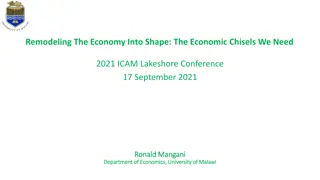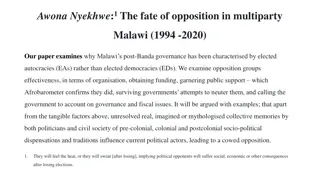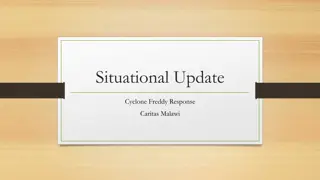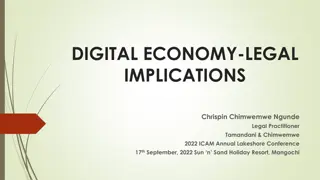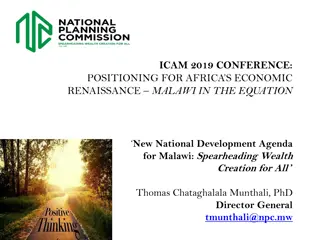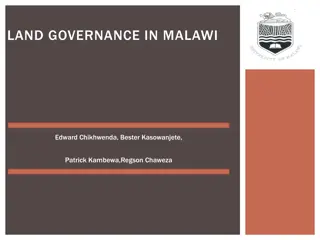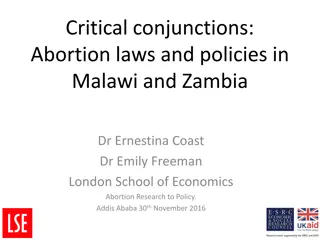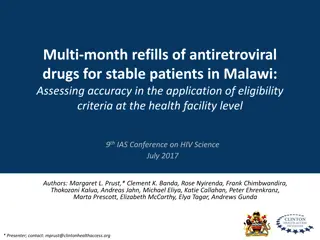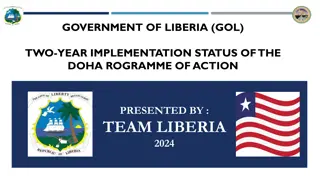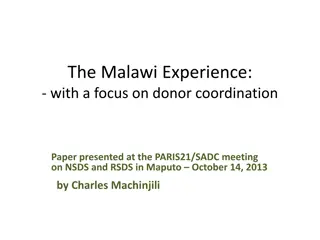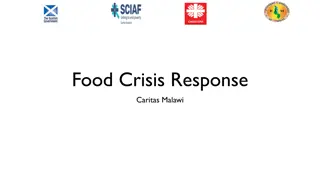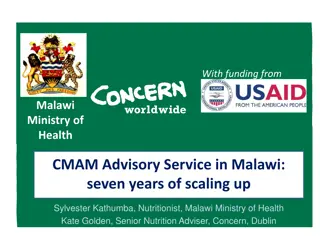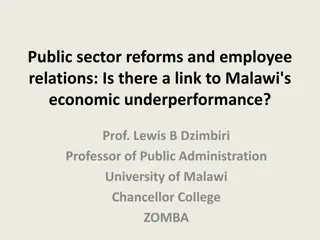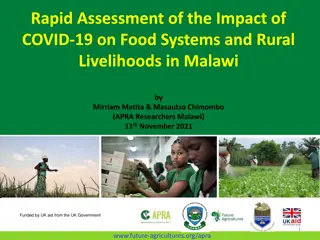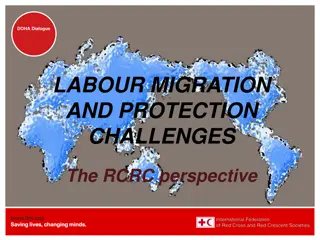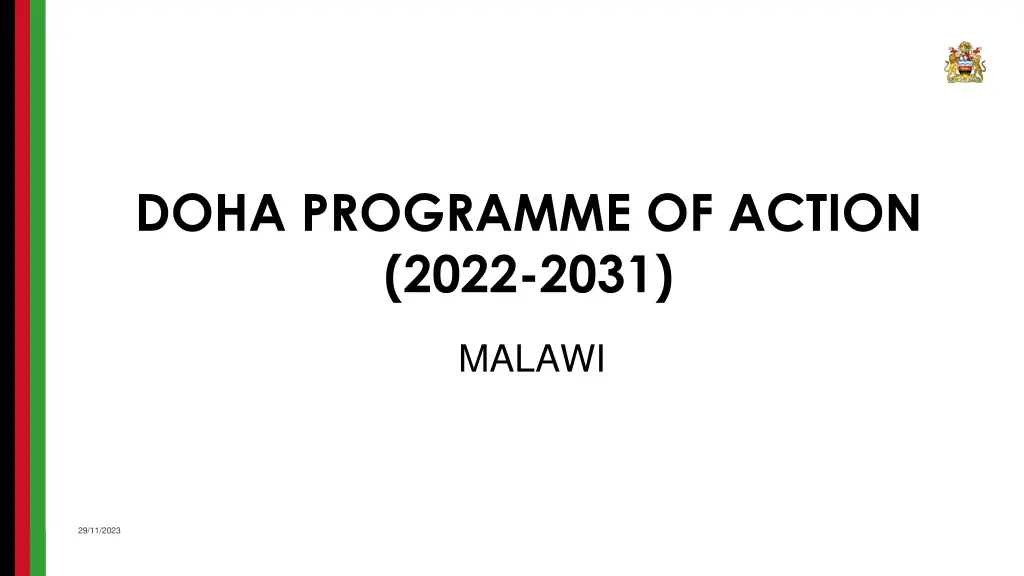
Malawi's Doha Programme of Action 2022-2031 Overview
Explore Malawi's involvement in the Doha Programme of Action from 2022 to 2031, aligning with national development frameworks, challenges faced, and the multi-stakeholder approach adopted. Learn about Malawi's efforts in implementing the programme, resource mobilization strategies, and monitoring progress towards sustainable development goals.
Download Presentation

Please find below an Image/Link to download the presentation.
The content on the website is provided AS IS for your information and personal use only. It may not be sold, licensed, or shared on other websites without obtaining consent from the author. If you encounter any issues during the download, it is possible that the publisher has removed the file from their server.
You are allowed to download the files provided on this website for personal or commercial use, subject to the condition that they are used lawfully. All files are the property of their respective owners.
The content on the website is provided AS IS for your information and personal use only. It may not be sold, licensed, or shared on other websites without obtaining consent from the author.
E N D
Presentation Transcript
DOHA PROGRAMME OF ACTION (2022-2031) MALAWI 29/11/2023
OUTLINE Background Malawi s National Development Framework: Agenda 2063 Aligning Doha Programme of Action and Malawi 2063 Implementation Framework and Progress Multi-Stakeholder Approach Challenges Generic Lessons for Malawi Conclusion 2
BACKGROUND & CONTEXT Malawi, a country in Southeastern Africa, is classified as a Least Developed Country (LDC) due to its low income and economic vulnerability Malawi faces significant challenges including widespread poverty, low human development vulnerability to climate change impacts. Malawi actively participated in the Istanbul Program of Action (IPoA) from 2011 to 2020, which focused on sustainable economic growth, development, and enhanced trade opportunities. indices, and high human and social 3
Cntd Malawi served as the Chair of the LDC Group until 2023, playing a key role in advocating for the interests of LDCs and emphasizing the need for continued international support and cooperation. Malawi, has demonstrated a long-term commitment to international development implementation of programs of action designed for LDCs. The adoption and active participation in initiatives like the Istanbul Program of Action and the Doha Program of Action highlight Malawi s dedication to overcoming its development challenges and striving for a brighter future. cooperation and the 4
IMPLEMENTATION FRAMEWORK AND PROGRESS Mainstreaming the DPoA into the national development agenda and using national frameworks for implementation Malawi has sensitized Ministries, Departments, Agencies Malawi has developed mainstreaming guidelines Domestic Resource Mobilisation Malawi is currently exploring innovative resource mobilisation mechanisms such as private sector engagements (PPPs), Diaspora, Non State Actors and the Integrated National Financing Framework Monitoring and Evaluation Department of Economic planning in collaboration with National Planning Commission is developing a coherent M&E framework to monitor national interventions 6
MULTI-STAKEHOLDER APPROACH The Ministry of Economic Planning and Development is the main implementor of the DPoA and works closely with the Ministry of Foreign Affairs and the National Planning Commission. There is coordination with all relevant government institutions to ensure a multi-sectoral implementation approach. The UN Malawi Office also continuously renders its support to the government of Malawi. However, meaningful stakeholder participation: private sector, academia, and Civil Society capacity building and a robust partnership framework there are opportunities to strengthen Organisations through 7
DOHA PROGRAMME OF ACTION GENERIC LESSONS Community Engagement: Leave no one behind when implementing DPoA Collaboration among local stakeholders is vital SMEs are key for the success of DPoA de-risking financing of SMEs; Commitment to implementing national plans is important (incl. mainstreaming global frameworks) Peer learning: Need to learn from those making progress; Domestic resource mobilisation is critical; and Graduation is possible but countries need to be supported in the graduation process. 8
CONCLUSION Malawi has remained in the LDCs category since 1971. There is implementation of the DPoA and aim to graduate from the LDCs category by 2031. There is need to accelerate domestication by fast tracking the mainstreaming process and ensure that all key stakeholders are on board Need to speed up Framework for DPoA With the country s commitment and Development Partners, progress to graduate from the LDCs category need to accelerate development of M&E support make Malawi will 9
THANK YOU ZIKOMO KWAMIBIRI 10


